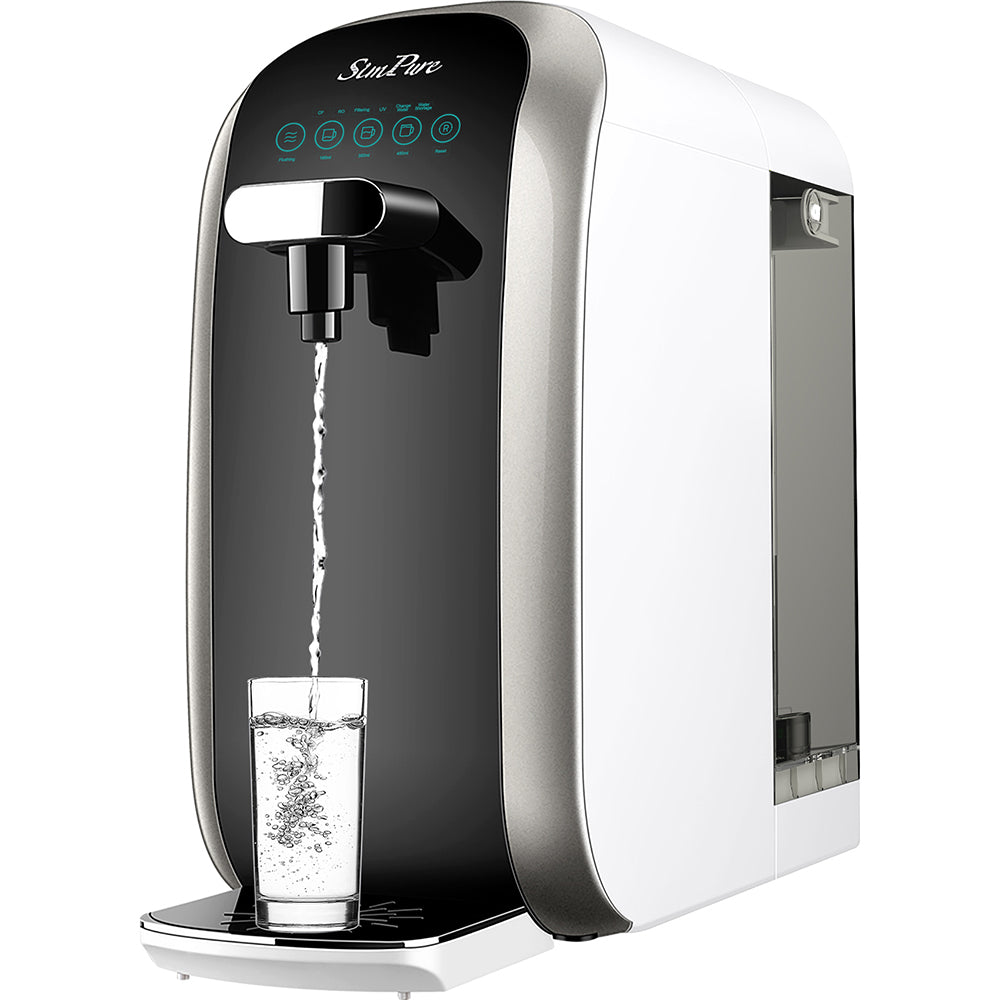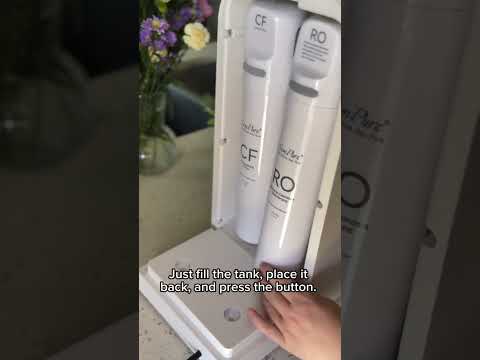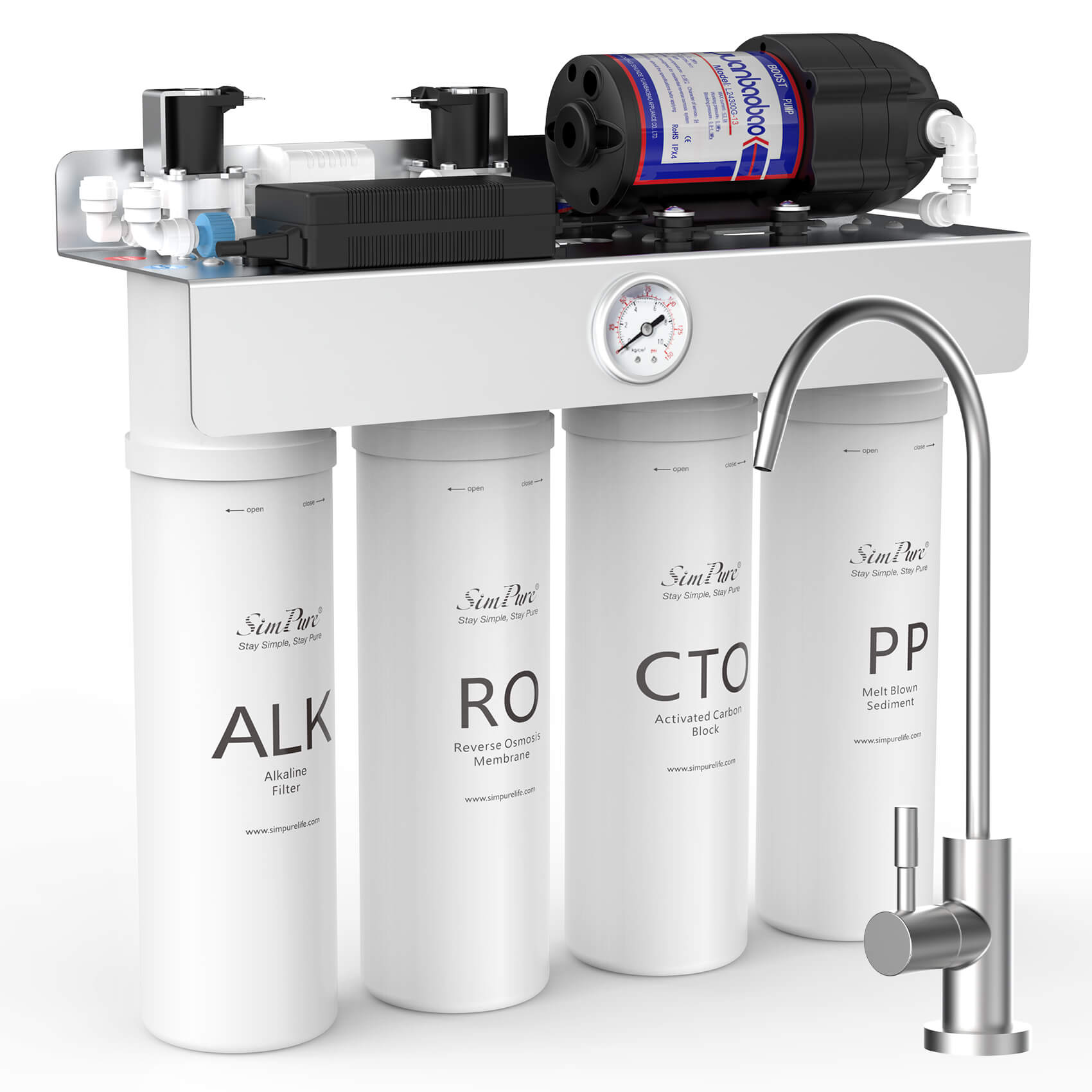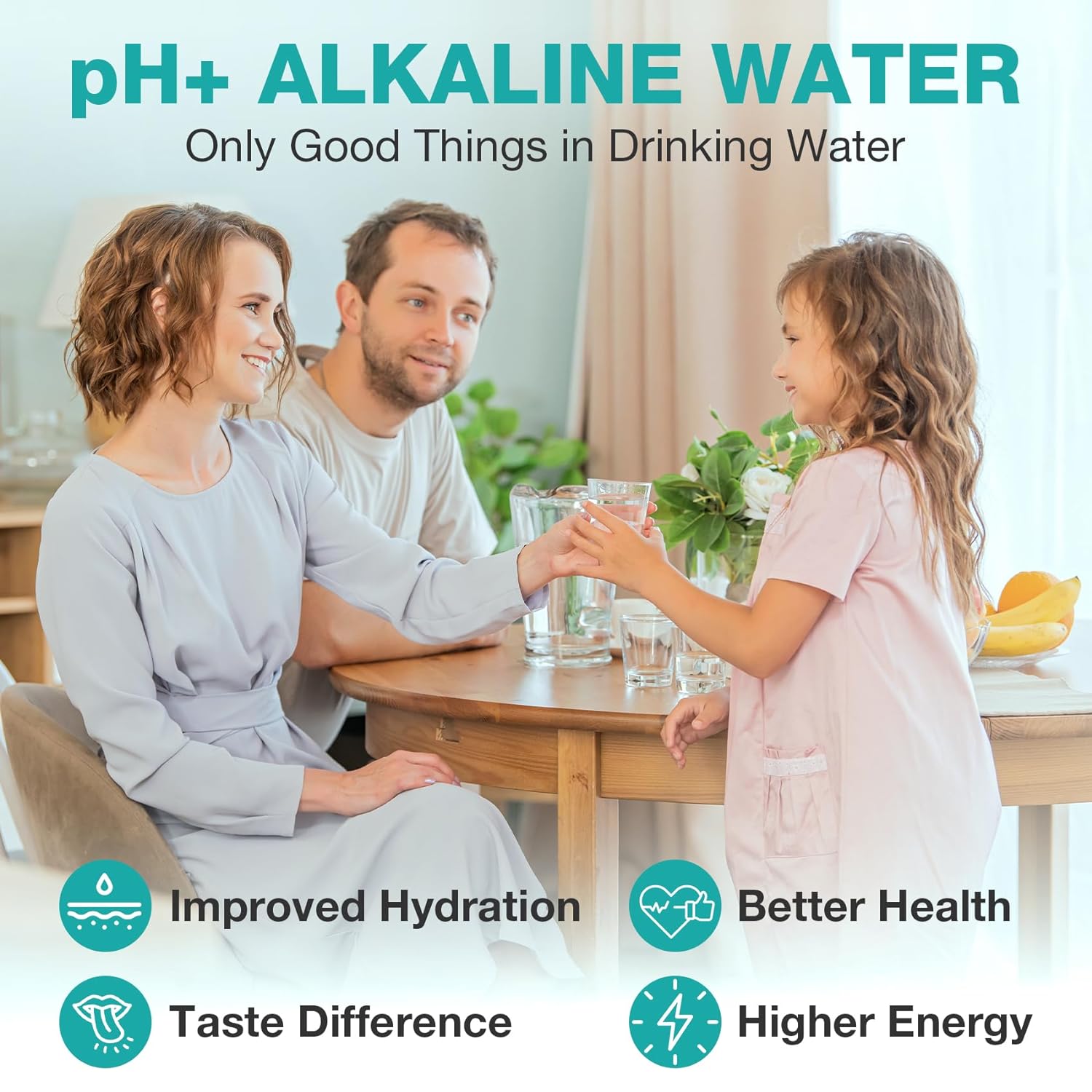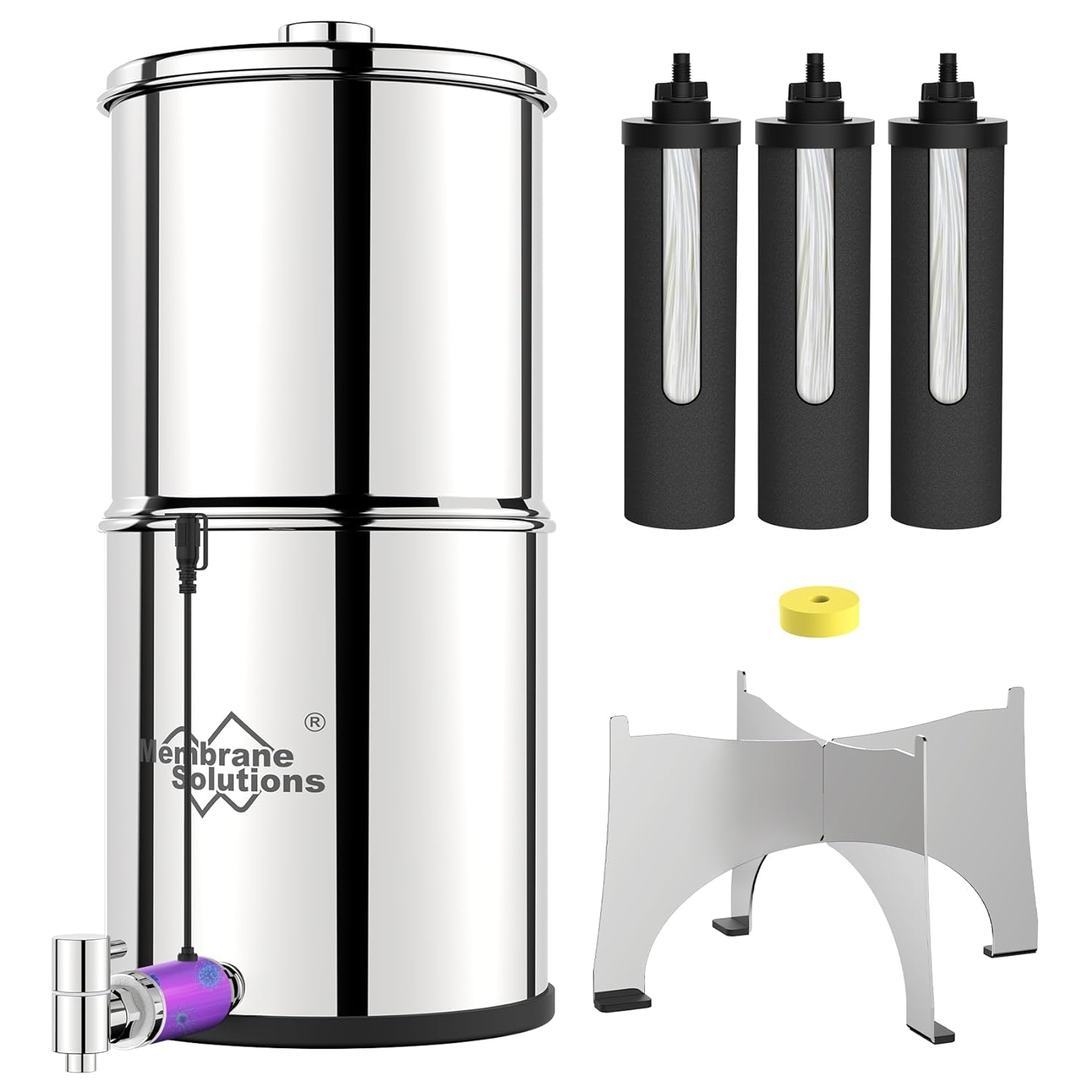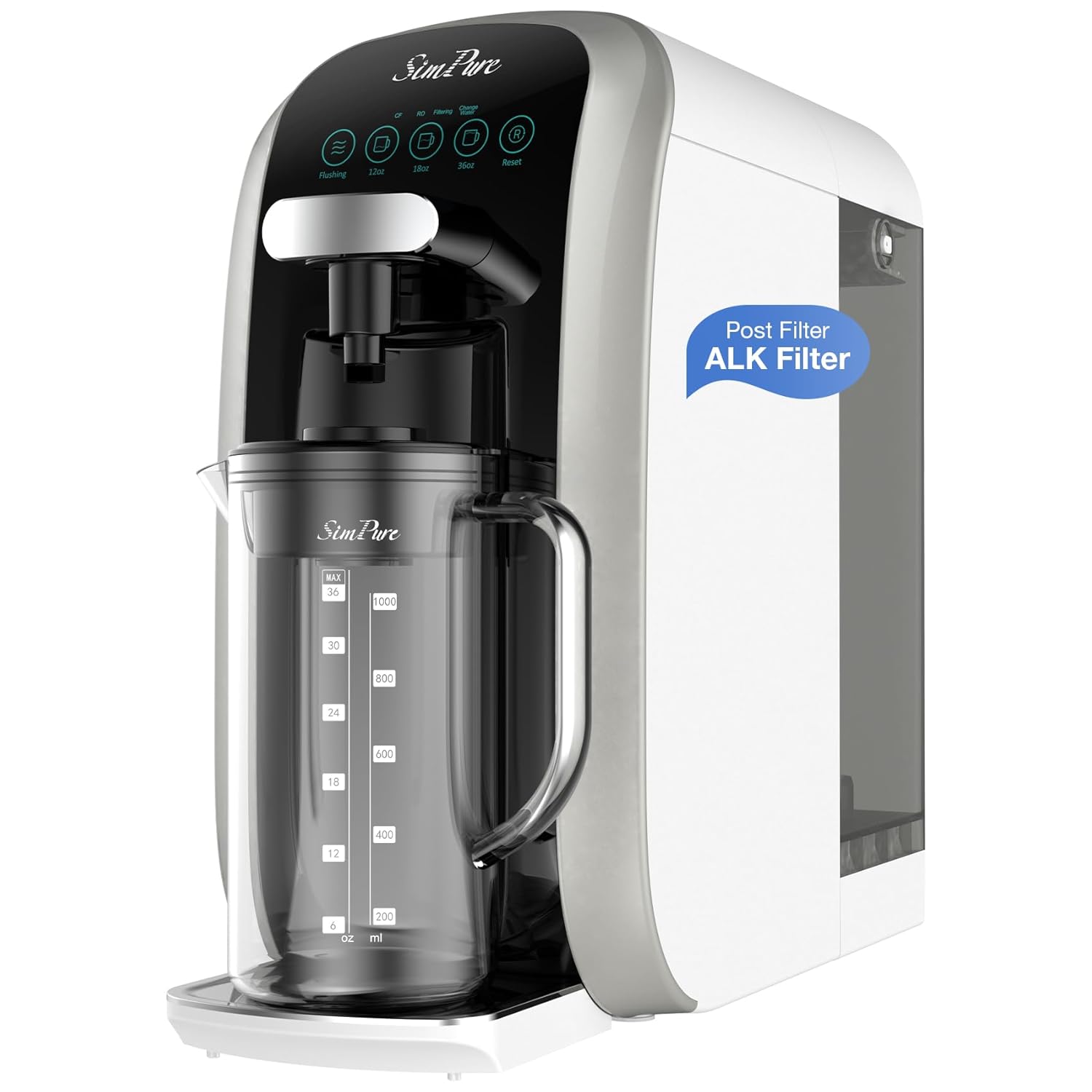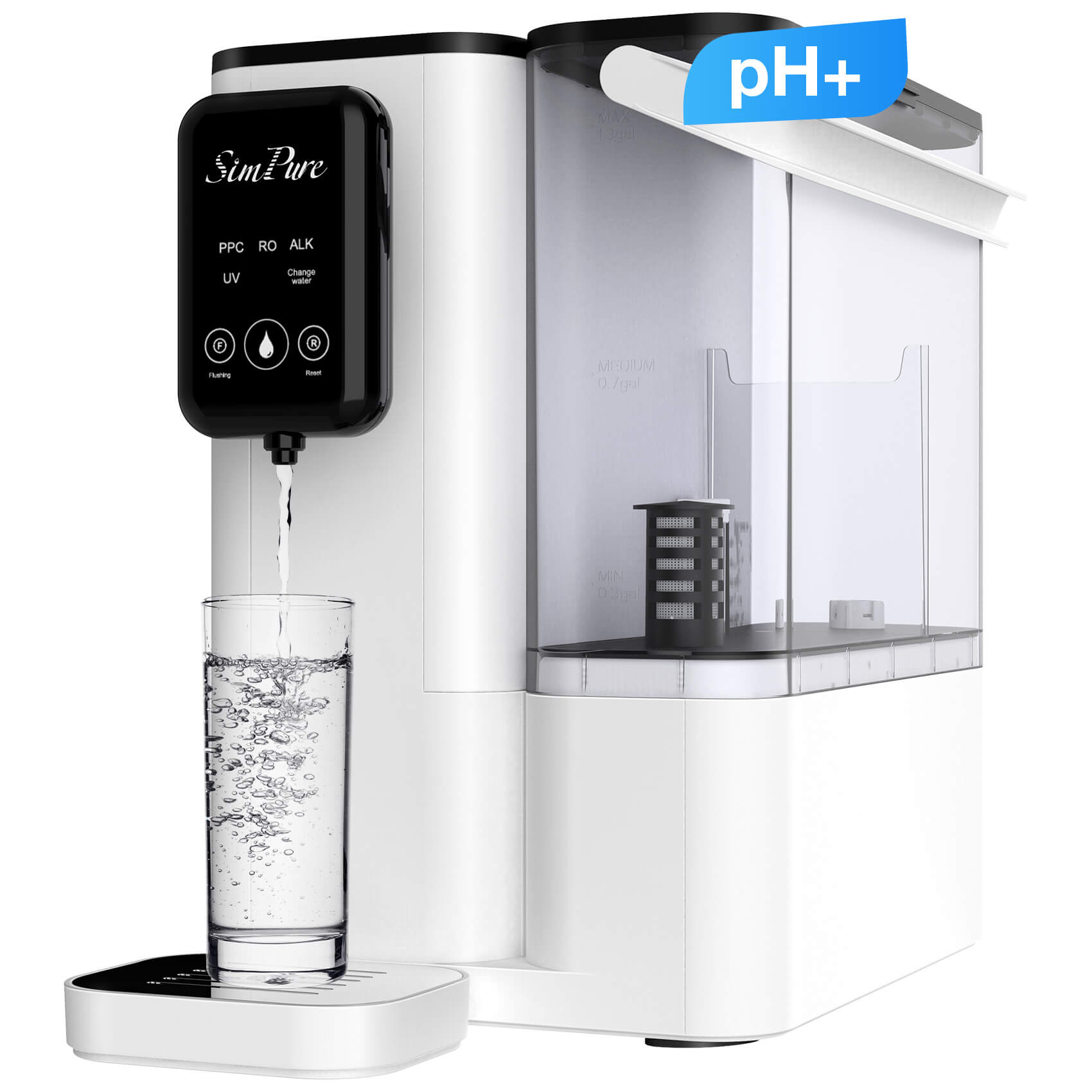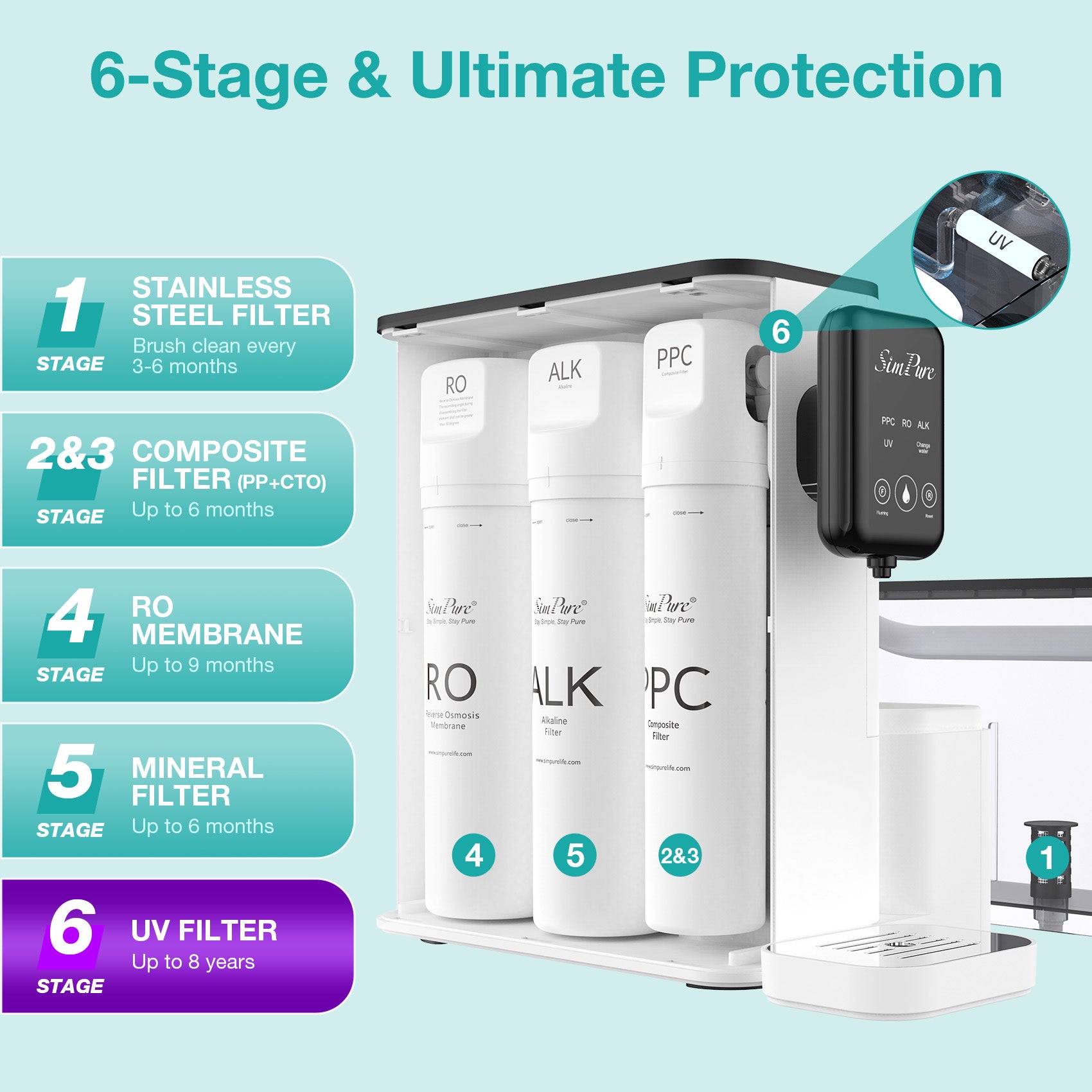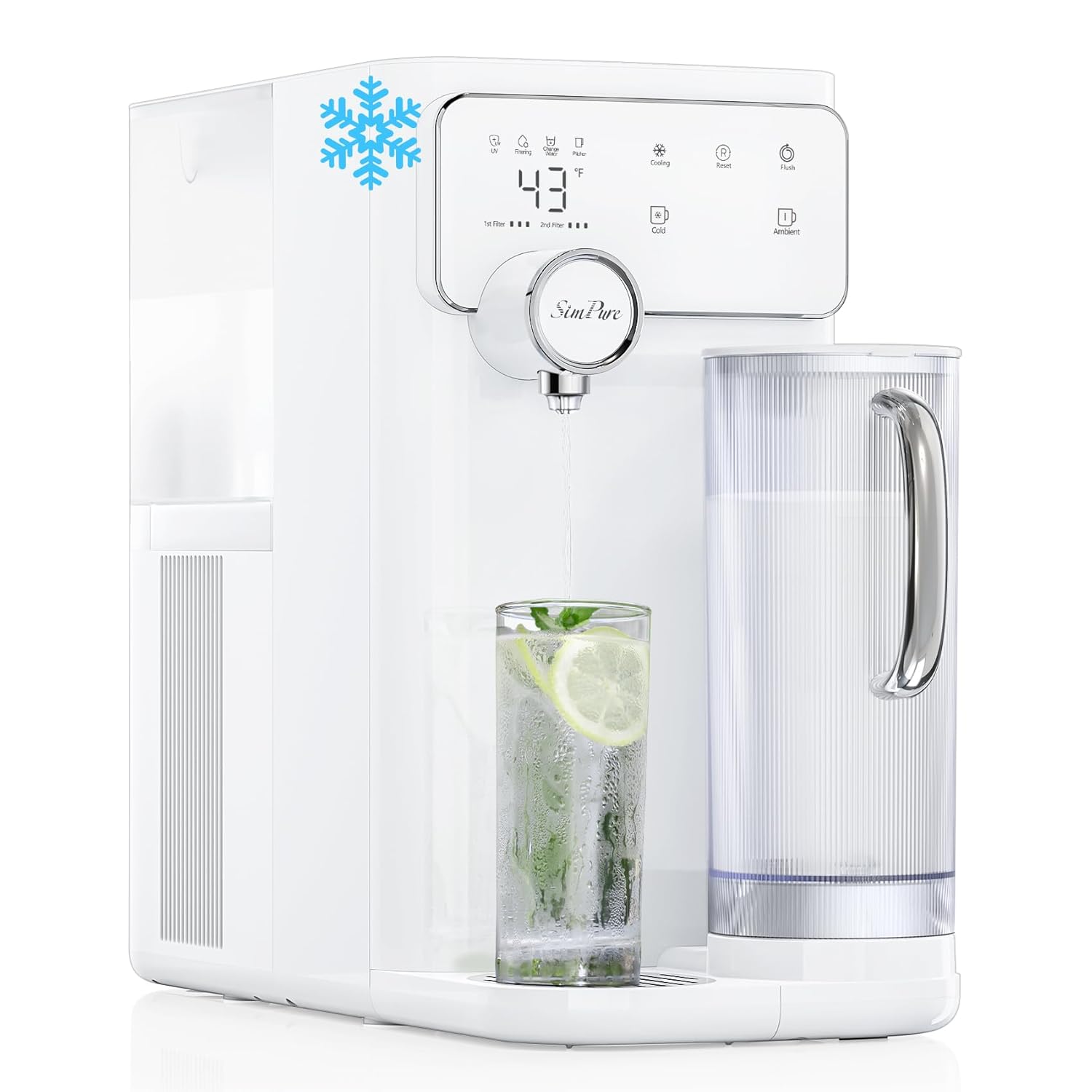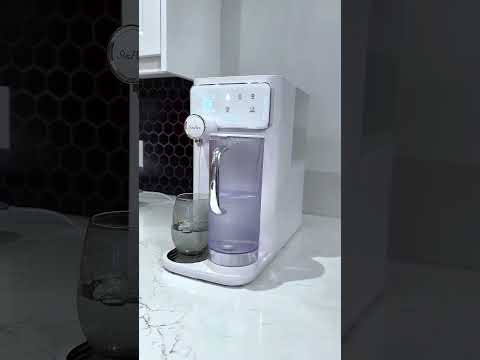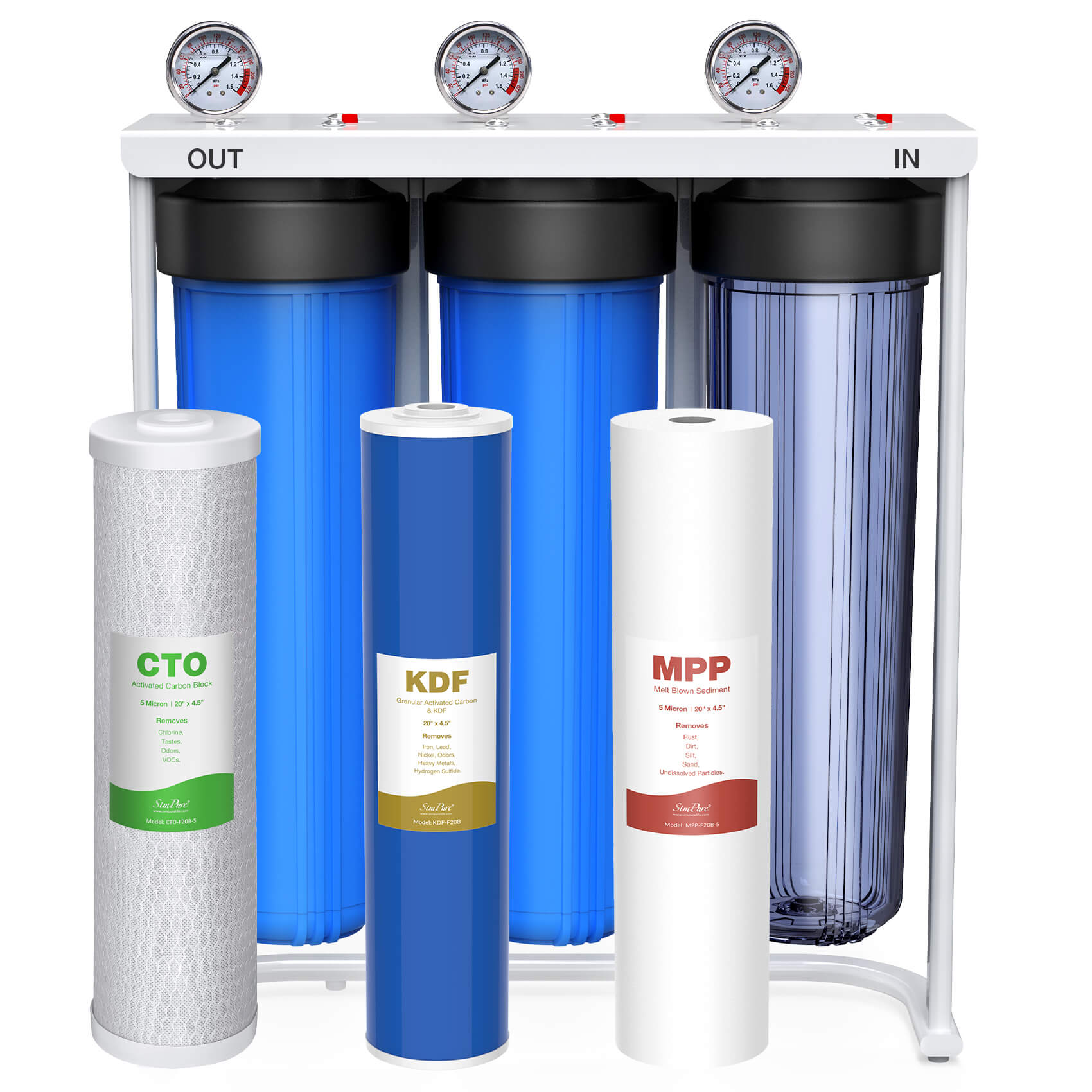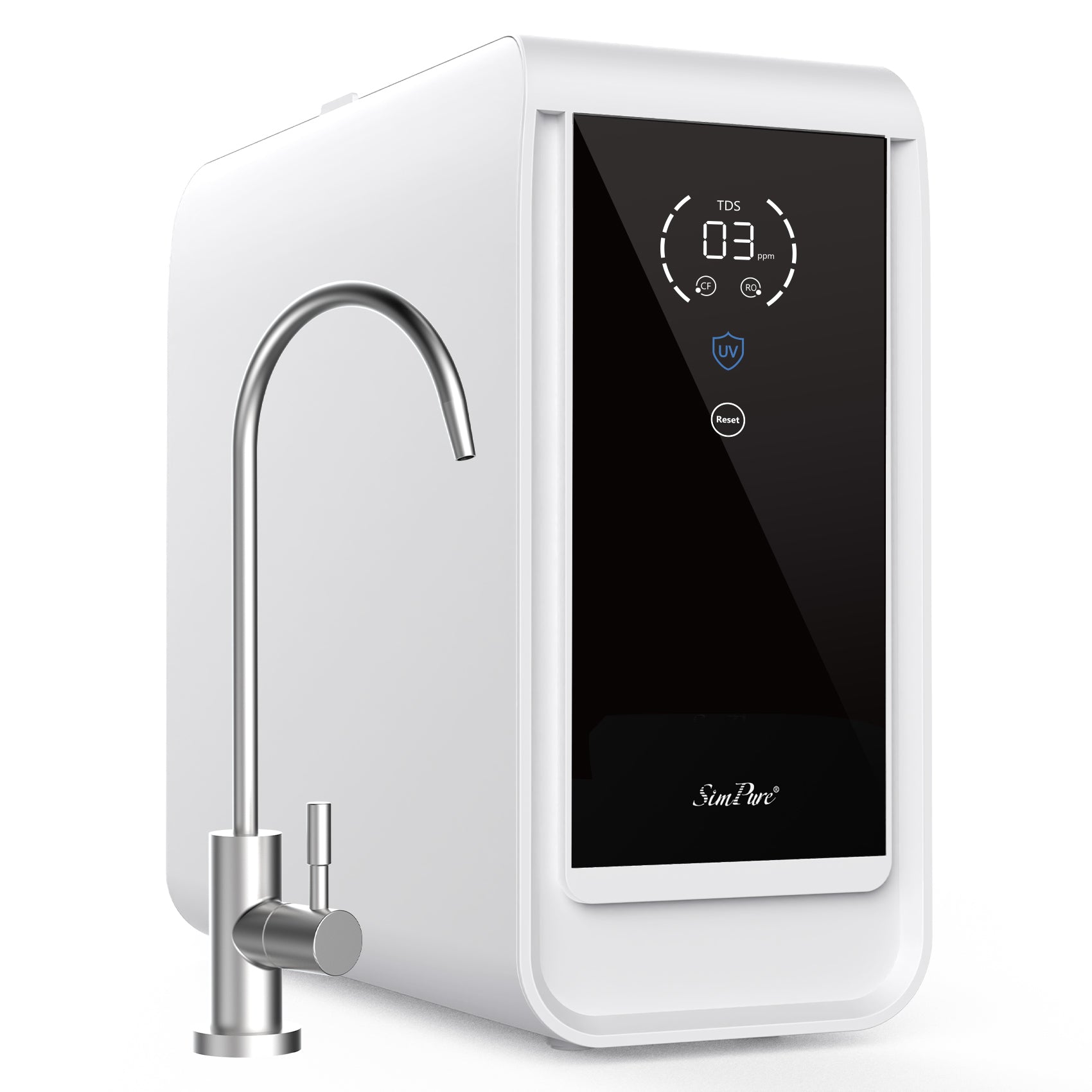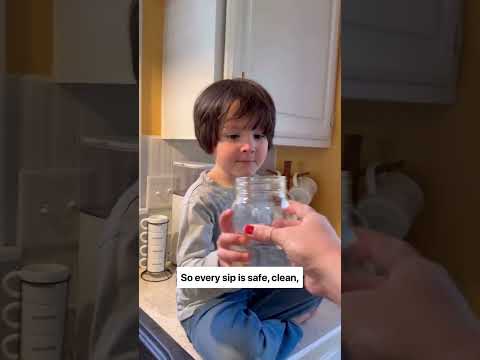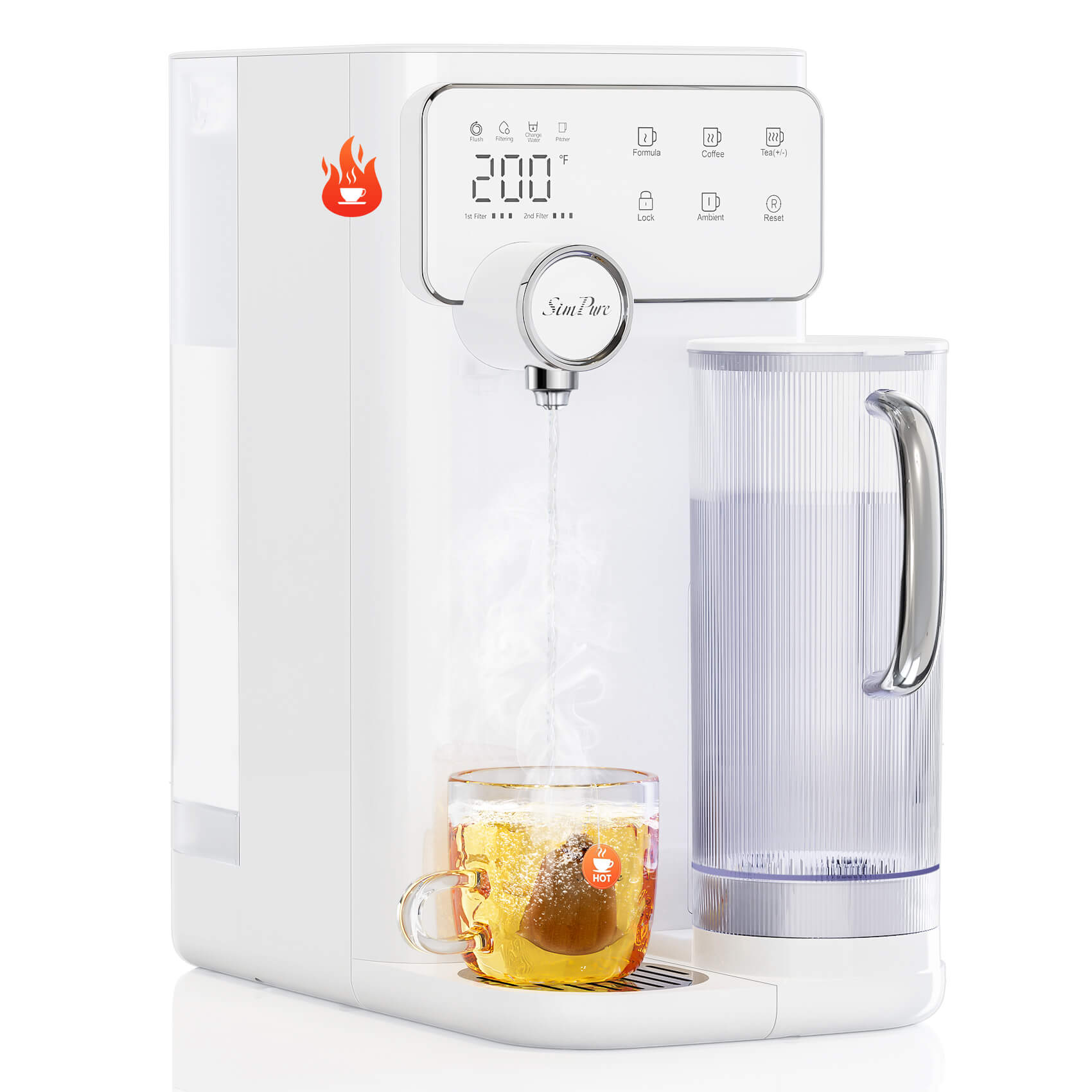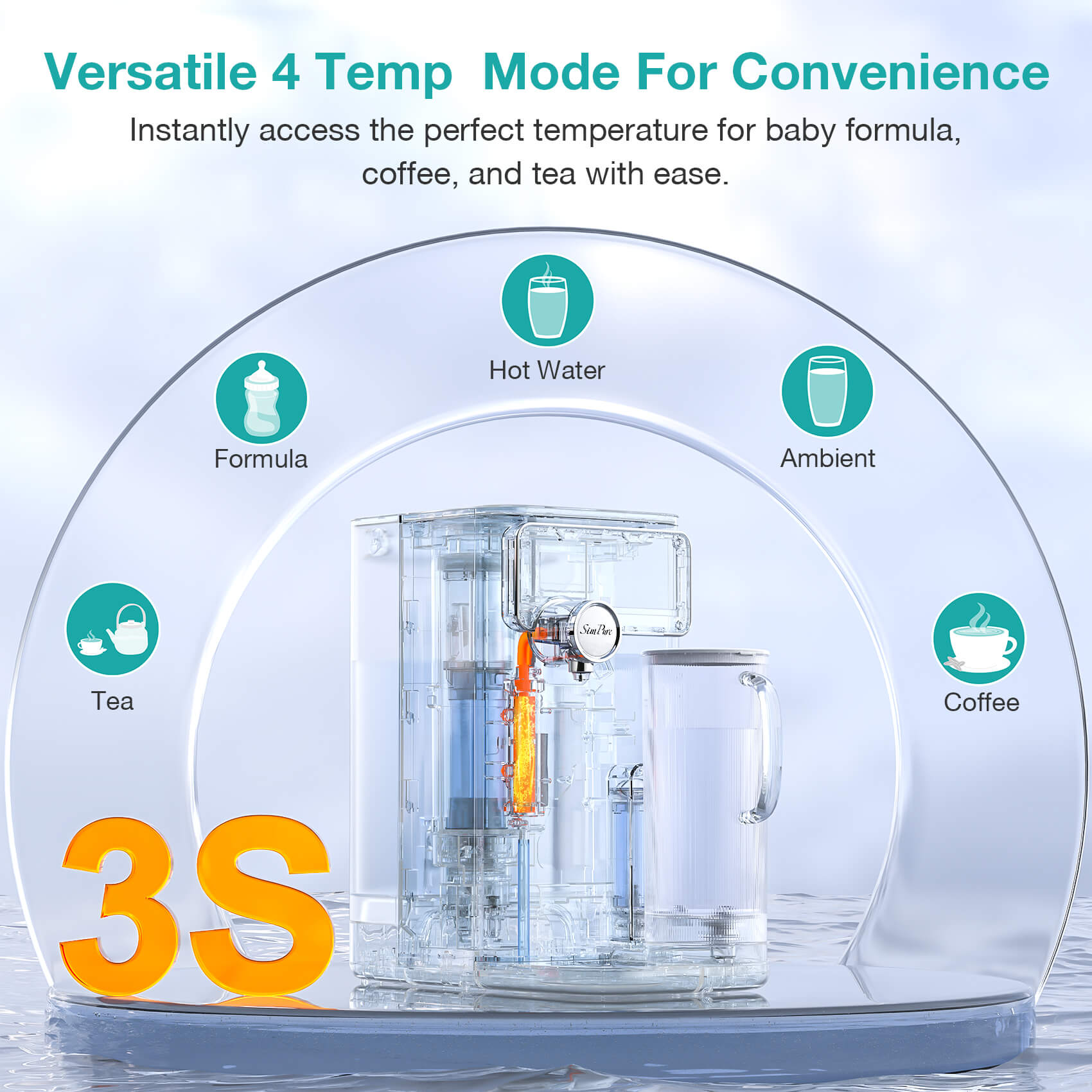In recent years, the debate between filtered water vs bottled water has gained significant attention. As concerns over water quality and environmental impact grow, many people are questioning whether filtered water is the same as bottled water. In reality, these two types of water are quite different, and understanding their unique benefits can help you make a more informed choice for your hydration needs.
1. Filtered Water

Filtered water is tap water that has been purified through various filtration methods. These methods, such as reverse osmosis, carbon filters, and UV purification, are designed to remove contaminants and impurities from the water, making it safer and more palatable. Unlike bottled water, which often comes from various sources, filtered water typically starts with tap water that is then treated to enhance its quality.
Benefits of Filtered Water
Solve Secondary Pollution: One of the key advantages of filtered water is its ability to address secondary pollution from tap water. Tap water can suffer from contamination during transportation through pipelines, leading to the presence of bacteria, heavy metals, and volatile substances. Boiling water can kill bacteria, but it doesn’t remove sediment, rust, heavy metals, or other contaminants. Moreover, boiling can produce chloroform, a carcinogen, from residual chlorine. A water filter removes these pollutants effectively, ensuring cleaner and safer drinking water.
Cost Efficiency: Over time, the cost of using a water filter can be significantly lower than purchasing bottled water. While a water filter system may have an initial investment, the ongoing cost of replacement filters is generally much cheaper compared to buying bottled water regularly. Furthermore, high-quality reverse osmosis systems can provide purified water at a fraction of the cost of bottled water.
2. Bottled Water
Bottled water is water that has been collected from various sources and bottled for consumption. There are several types of bottled water, including spring water, purified water, and mineral water. The production process involves treating the water to meet safety standards and then packaging it in plastic or glass bottles for distribution.
Benefits of Bottled Water
Convenience: Bottled water offers a high level of convenience. It is readily available at stores and can be easily carried and consumed on the go. For those who need immediate access to clean drinking water without the setup of a filtration system, bottled water is a practical option.
Consistency: Bottled water is generally consistent in quality due to stringent safety regulations. The water is tested and treated to ensure it meets health standards, providing a reliable source of drinking water.
- Is Bottled Water Filtered?
Yes, bottled water is typically filtered, but the level of filtration can vary depending on the brand and type of bottled water. Most bottled water undergoes a filtration process to remove impurities and contaminants. Common methods include reverse osmosis, distillation, and carbon filtration. However, the effectiveness of these processes can differ, and bottled water is often sourced from municipal supplies or natural springs. While bottled water is treated to meet safety standards, it may not always achieve the same level of purity as water filtered through advanced home systems. The quality of bottled water also depends on the handling and storage conditions, which can affect its overall safety and taste.
3. Filtered Water vs Bottled Water: Key Differences
Having established the foundational aspects of filtered and bottled water, it’s important to delve into their key differences to fully understand which option might be more suitable for your needs.
1. Source and Processing
Filtered Water: The filtration process involves removing impurities from tap water. Methods like reverse osmosis can filter out contaminants down to 0.0001 microns, making the water much purer and healthier to drink.
Bottled Water: Bottled water can come from various sources, including springs or municipal supplies. It is processed and treated to ensure safety, but it may not be as consistently pure as filtered water due to the variability in source and treatment processes.
2. Cost Comparison
Initial and Long-term Costs: Bottled water can be expensive, with costs adding up over time. In contrast, a water filter system, while requiring an upfront investment, generally results in lower ongoing costs compared to purchasing bottled water.
3. Environmental Impact
Plastic Waste: Bottled water contributes to plastic waste, which is a significant environmental concern. Plastic bottles can take hundreds of years to decompose, contributing to pollution.
Sustainability: Water filters offer a more sustainable solution. By using a water filter, you can reduce plastic waste and lower your environmental footprint. Filters can be reused with proper maintenance, making them a more eco-friendly choice.
4. Is Filtered Water the Same as Bottled Water?
Are these two options truly the same? While both provide clean drinking water, they differ significantly in several aspects. To understand these differences more clearly, we'll explore the distinct characteristics of filtered and bottled water, focusing on their purity, safety, and overall quality.
- From Purity Levels
Filtered water often has higher purity levels because it is specifically treated to remove a wide range of contaminants. Bottled water, while treated, may not always achieve the same level of purity due to differences in source and treatment methods.
- From Regulations and Standards
Both filtered water and bottled water are subject to regulations, but the standards can differ. Filtered water is typically subjected to rigorous testing and treatment processes to ensure safety, whereas bottled water is regulated by different standards that can vary depending on the source and type.
- From Taste and Quality
Many people find that filtered water tastes better than bottled water due to the removal of chlorine and other taste-altering substances. Bottled water can have a taste that varies depending on its source and treatment.
- From Quality Assurance
Both options have quality assurance practices, but filtered water benefits from ongoing maintenance and regular filter changes, which can help maintain high water quality.
Recommendations: When to Choose Filtered Water?
As we transition to practical recommendations, we'll focus on scenarios where filtered water stands out as the optimal choice.

Consider choosing filtered water if you prioritize long-term cost savings, environmental sustainability, and consistent water quality. Filtered water systems offer a more economical solution over time compared to regularly purchasing bottled water. They also reduce plastic waste, aligning with eco-friendly practices. Additionally, filtered water provides reliable purification, removing contaminants that may affect health. If you’re committed to reducing your environmental footprint and ensuring safe, clean water for daily use, investing in a high-quality water filter system is a smart choice. It’s especially beneficial if you have access to tap water and are looking for a convenient, sustainable option.
Recommendations: When to Opt for Bottled Water?
Opting for bottled water can be a practical choice in certain situations. If you need immediate access to clean drinking water while traveling or during emergencies, bottled water offers convenience and portability. It’s also useful in areas where tap water may be unreliable or unavailable. For those who prioritize convenience over long-term costs and environmental impact, bottled water can be a quick solution. If in this situation, you also do not want to carry too many heavy packages, you can bring a water filter straw for safer and cleaner water in the wild.
In conclusion, while both filtered water and bottled water have their advantages, filtered water generally offers superior purity, cost efficiency, and environmental benefits. As awareness of healthy drinking water increases, many households and businesses are transitioning from bottled water to water filters. For a reliable, high-quality water solution, consider investing in a SimPure water filter. SimPure’s advanced filtration systems, including their top-rated reverse osmosis models, ensure your water is free from contaminants while being cost-effective and eco-friendly. Choosing SimPure not only enhances your water quality but also supports a more sustainable lifestyle!



